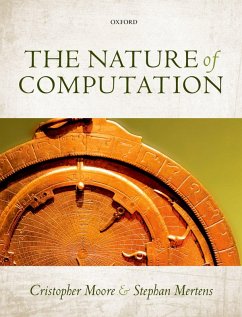Computational complexity is one of the most beautiful fields of modern mathematics, and it is increasingly relevant to other sciences ranging from physics to biology. But this beauty is often buried underneath layers of unnecessary formalism, and exciting recent results like interactive proofs, phase transitions, and quantum computing are usually considered too advanced for the typical student. This book bridges these gaps by explaining the deep ideas of theoretical computer science in a clear and enjoyable fashion, making them accessible to non-computer scientists and to computer scientists who finally want to appreciate their field from a new point of view. The authors start with a lucid and playful explanation of the P vs. NP problem, explaining why it is so fundamental, and so hard to resolve. They then lead the reader through the complexity of mazes and games; optimization in theory and practice; randomized algorithms, interactive proofs, and pseudorandomness; Markov chains and phase transitions; and the outer reaches of quantum computing. At every turn, they use a minimum of formalism, providing explanations that are both deep and accessible. The book is intended for graduate and undergraduate students, scientists from other areas who have long wanted to understand this subject, and experts who want to fall in love with this field all over again.
Dieser Download kann aus rechtlichen Gründen nur mit Rechnungsadresse in A, B, BG, CY, CZ, D, DK, EW, E, FIN, F, GR, HR, H, IRL, I, LT, L, LR, M, NL, PL, P, R, S, SLO, SK ausgeliefert werden.

